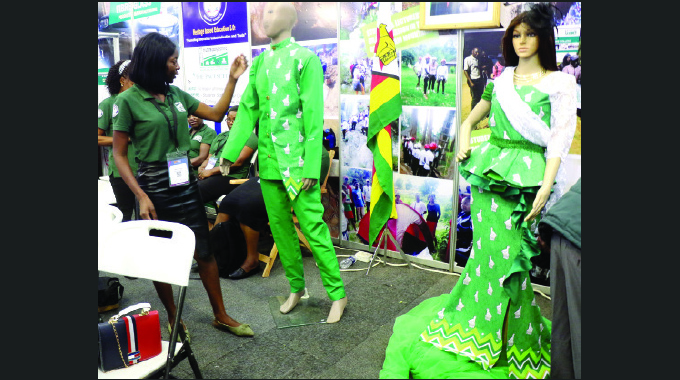The role of public relations in politics
Lenox Mhlanga
Zimbabwe has never been a predictable country as far as politics is concerned. If it were not policy inconsistencies, it just had to be how unconventional the country’s economic environment was.
Experience has taught us that this country is not the usual fare. Global and regional analysts will burn out if they used a conventional template to make head or tail of our unique issues and challenges.
In fact, one colleague said that if one could survive living in Zimbabwe, then they could easily survive anywhere else, even on Mars! Some of us have found this to be a truism.
To say that 2017 has been epic in every sense of the word is an understatement as Zimbabwe continued to hog the news. The last two weeks of November will forever be etched in the minds of citizens, while continuing to baffle the rest of the world.
Who could have imagined the ignominious exit of one of Africa’s longest-serving rulers, Robert Gabriel Mugabe? The manner in which it occurred?
What was incredible about the whole experience was while the rest of our relatives in the diaspora nearly lost their heads in a blind panic, we kept ours.
This could be an indication of how those out of touch may be given the often-emotional outbursts we read on social media from armchair analysts and observers safely ensconced on far shores.
The army won the hearts of many in how it conducted Operation Restore Legacy. It defied all logic to the extent that ‘General Bae’ Sibusiso Moyo’s cool, calm and collected delivery of the launch of the operation on Zimbabwe television will no doubt remain a communication masterpiece.
It set the mood of the populace who poured out into the streets in a carnival-like show of support when it seemed Mugabe would not budge.
Lieutenant General Moyo’s statement that: “The president and his family are safe, and sound and his security is guaranteed. However, we are targeting criminal elements around him,” is in the running for ‘saying of the year.’
The events of November and December 2017, which we are yet to wrap up, brought into sharp focus the critical role public relations plays in politics.
Throughout history, the use of public relations has always existed.
In ancient Greece, public speaking was the staple of political life. Roman conquerors used rhetoric to inspire soldiers to win wars. And the French revolutionists used the power of influencing the public to overthrow the monarchy.
Elsewhere in England, Kings and Queens hired playwrights to write pieces showcasing them only as they wished the public to see. This subtle form of PR remains popular in contemporary politics.
What has become clear on the role of PR in politics, however, is not just the use of PR. It’s the fact that politicians and political parties now hire experts in the field to run their campaigns and to manage their reputations.
There are opportunities for a greater role of public relations in the new dispensation in Zimbabwe. Recent events have glaringly shown why PR should find its place among the different parties competing for our support and votes.
Changes in leadership
President Emmerson Mnangagwa has become the voice and face of the new dispensation. He is trying to portray a break away from the old. Some say it’s Zanu-PF rebooted. However, the one-centre of communication model adopted by both government and Zanu PF has and will come under severe test.
This is more so in a country that is anxious for information and change. Hence the pressure on the incumbent to do the impossible, that of delivering tangible change within a short space of time.
There are competing interests in the local political environment particularly from the so-called G40 clique and the opposition parties. In the age of fake news and pervasive social media, the environment does not tolerate an information vacuum. Gossip and rumours compete for space in Zimbabwe.
These present challenges that government communicators need to be wary of. There should be an investment in public information tools and systems that will work to keep the population abreast of what is happening.
Rebrand ZRP or what?
One of the effects of the events of November was how military action brought into sharp contrast the reputation, image and conduct of the Zimbabwe Republic Police. The degree of impunity of the previous establishment was mirrored in the operations of the ZRP.
It was relied upon to brutally stamp out any form of dissent and was also complicit in the extortion of ordinary motorists through maligned roadblocks.
Their glum display of ignorance in the face of glaring complicity won their spokesperson very few fans.
The fact that their ‘Operation Thath’ Imali or Tora Mari,’ was doing untold damage to both the economy and the image of the country was lost on the police force’s leadership. Their removal and replacement with army checkpoints during the military operation became a symbol of a new dispensation.
The army operated their checkpoints professionally and was at times full of humour. I was asked if I was hiding any bombs in my now protruding potbelly, much to wild laughter all around. The officers were careful not to unnecessarily alarm us travellers.
This was a sharp contrast to the way ZRP previously conducted themselves at the countless unofficial tollgates that littered the highways and cities. Such was the mood that when the army announced the end of the Operation Restore Legacy early this week, there a collective groan of dismay cutting right across the nation.
The ZRP has an excellent citizen’s charter, and all that needs to be done to win back our trust is to apply it humanely and professionally.
Granted that they have been warned not to go back to their old ways.
The retirement of the erstwhile Commissioner of Police, Dr Augustine Chihuri, should be followed up with a genuine commitment to turning a new leaf.
The replacement of their abrasive spokesperson being a welcome bonus. Merry Christmas and a happy 2018 to all of you from me!









Comments